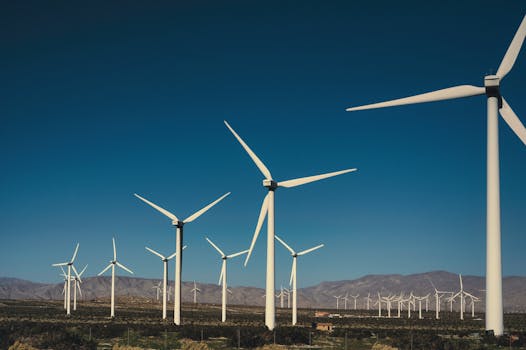+17162654855
+17162654855
DMV Publication News serves as an authoritative platform for delivering the latest industry updates, research insights, and significant developments across various sectors. Our news articles provide a comprehensive view of market trends, key findings, and groundbreaking initiatives, ensuring businesses and professionals stay ahead in a competitive landscape.
The News section on DMV Publication News highlights major industry events such as product launches, market expansions, mergers and acquisitions, financial reports, and strategic collaborations. This dedicated space allows businesses to gain valuable insights into evolving market dynamics, empowering them to make informed decisions.
At DMV Publication News, we cover a diverse range of industries, including Healthcare, Automotive, Utilities, Materials, Chemicals, Energy, Telecommunications, Technology, Financials, and Consumer Goods. Our mission is to ensure that professionals across these sectors have access to high-quality, data-driven news that shapes their industry’s future.
By featuring key industry updates and expert insights, DMV Publication News enhances brand visibility, credibility, and engagement for businesses worldwide. Whether it's the latest technological breakthrough or emerging market opportunities, our platform serves as a bridge between industry leaders, stakeholders, and decision-makers.
Stay informed with DMV Publication News – your trusted source for impactful industry news.
Energy

**
The U.S. energy grid is facing a potential crisis. A recent internal report from the Department of Energy (DOE) paints a stark warning: increased reliance on renewable energy sources like solar and wind power without sufficient grid modernization could lead to significantly more widespread blackouts by 2030. This prediction has sent shockwaves through the energy sector, sparking intense debate about the nation's energy transition and the critical need for grid infrastructure upgrades.
The report, which has not been publicly released but whose findings have been corroborated by multiple sources within the DOE, highlights a critical paradox: while renewable energy is crucial for combating climate change and achieving energy independence, its inherent intermittency poses a significant challenge to grid stability. Unlike traditional fossil fuel power plants, solar and wind power generation fluctuates dramatically depending on weather conditions. Sunny days yield abundant solar energy, while calm days drastically reduce wind power output. This variability creates instability in the grid, increasing the risk of cascading failures and widespread blackouts.
This isn't simply a matter of "the lights going out" in isolated areas. The DOE report emphasizes the potential for large-scale, cascading blackouts affecting millions of Americans. The current grid infrastructure, designed largely for a consistent power supply from coal and natural gas plants, is struggling to adapt to the erratic nature of renewable energy.
The DOE's warning is not a call to abandon renewable energy, but rather a critical wake-up call for a more strategic and coordinated approach to energy transition. The report underscores the urgent need for a multi-pronged strategy that addresses both the expansion of renewable energy sources and the modernization of the nation's aging electricity grid.
The report strongly advocates for significant investment in grid infrastructure upgrades. This includes:
While battery technology is developing rapidly, the DOE report also calls for exploration of other energy storage solutions, such as:
The findings of the DOE report have significant implications for energy policy and public awareness. The report suggests a need for:
The report’s conclusions highlight the need for a proactive and comprehensive approach. Delaying essential grid improvements will not only increase the risk of widespread blackouts but will also hinder the progress towards a cleaner, more sustainable energy future. The challenge is not to halt the renewable energy revolution, but to manage its integration intelligently and responsibly. Failing to do so could plunge the nation into a period of widespread power outages and severely impact the economy and public safety. The time to act is now. The future of the U.S. energy grid depends on it.